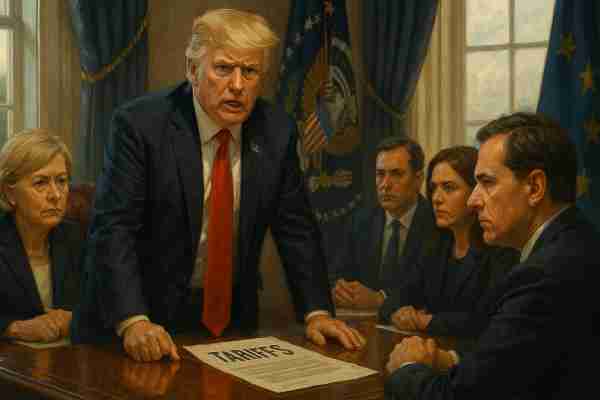On a July day in 2025, the world froze upon hearing the news: President Donald Trump, having returned to power, signed an order to impose 30% tariffs on goods from the EU and Mexico. In the white room of the Oval Office, he declared triumphantly: 'America must protect its workers!' But this announcement triggered alarm calls from Berlin to Brussels, from Paris to Mexico City. European leaders convened urgently — they understood this was not just an economic decision, it was a challenge. Macron firmly stated, 'If we remain silent — tomorrow tariffs will be on everything.' Merkel, calm but resolute, insisted on dialogue. Meloni demanded pragmatism. Meanwhile, Washington's stock indices were in turmoil. Industrialists were worried — retaliation could hit them directly. A rift grew within the Republican Party: parts of the MAGA movement saw Trump's step as dangerous. 'He's playing a big game — but millions' economies are at stake,' analysts wrote. Mexico, a loyal US partner under the USMCA, felt betrayed. President López Obrador declared, 'We won't stay silent. We'll turn to international arbitration.' IMF experts raised alarm: supply chains would be broken, prices would rise, and instability would spread. Yet China and India shrugged — they saw this as a chance to grow their influence. The EU accelerated talks with Indonesia, South Korea, and African nations — the future demanded diversification. This new trade war was more than just a clash of economies. It was a clash of ideologies: unilateral pressure versus collective response. And in this battle, the stakes were higher than any customs percentage — it was a fight for the shape of the world.
Shadow of Tariffs: Chronicles of an Economic War

Published : 13.07.2025
